What seemed like fiction is now eerily unfolding around us.
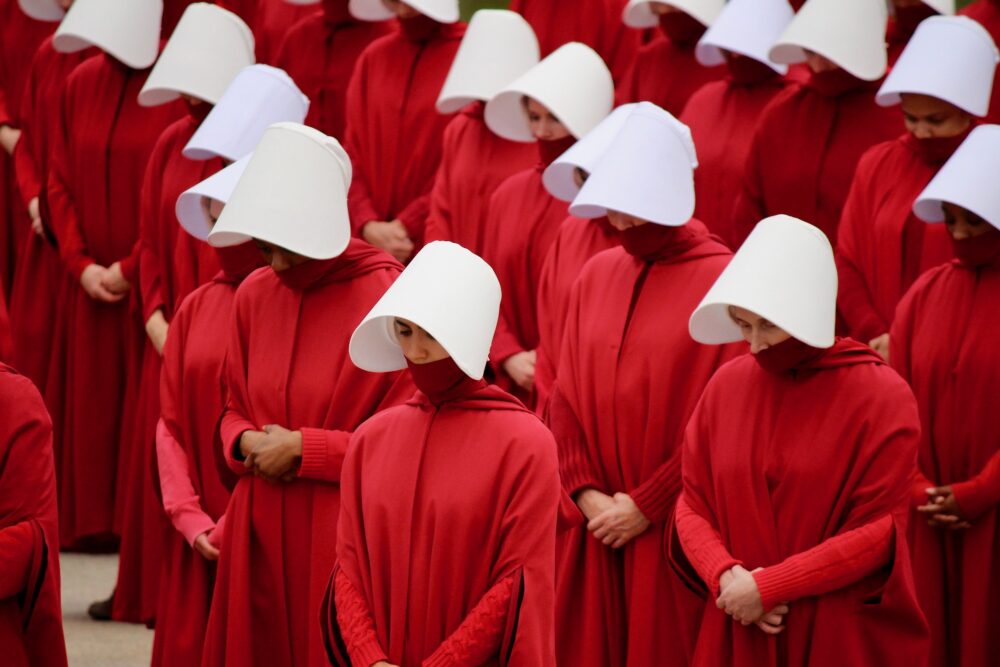
You probably thought The Handmaid’s Tale was just an unsettling story meant to shock and entertain—until the headlines started feeling like scenes ripped straight from Gilead. If you’ve ever watched the show or read the book and thought, “Well, that could never happen here,” you might be questioning that confidence now. You don’t have to be a conspiracy theorist to feel the unease creeping in when real-world events start echoing the darkest parts of dystopian fiction.
It’s that uncomfortable sense that the line between imagination and reality isn’t as solid as you once believed. You might find yourself thinking, Wait a minute—isn’t this exactly what happened in the story? And you’d be right to ask. The more you look, the more you start noticing the disturbing similarities. It’s enough to make anyone uneasy. Once you see the parallels, you can’t unsee them—and you start wondering how close we really are.
1. Women’s rights are slowly being chipped away in plain sight.
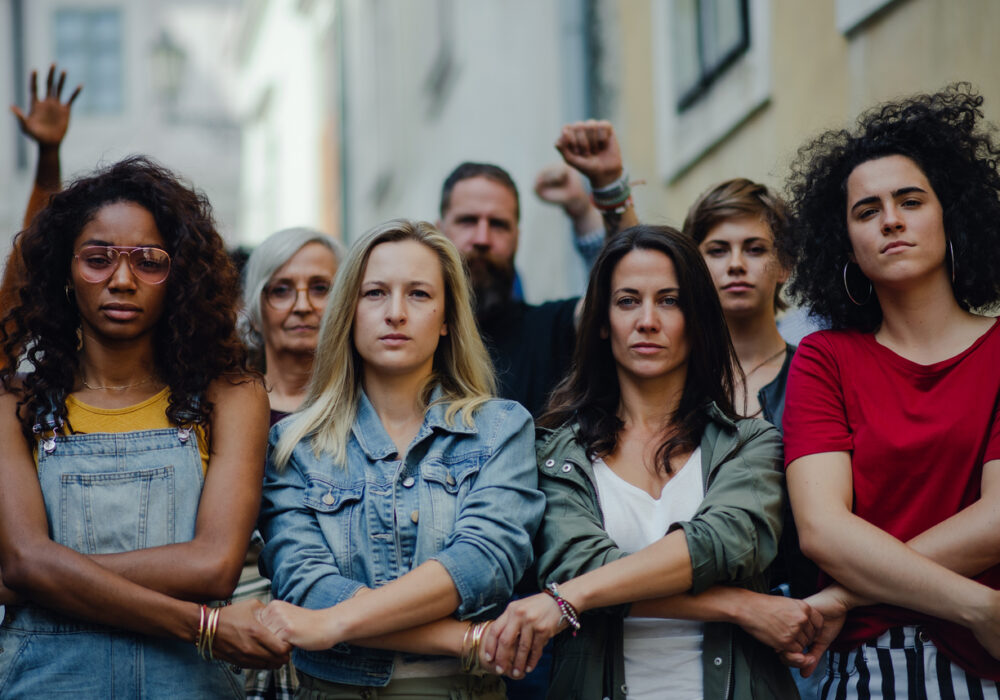
It doesn’t always happen in one dramatic moment—it’s the slow erosion that catches you off guard. You wake up one day and realize decisions about women’s bodies, choices, and freedoms are being made by people who don’t have to live with the consequences. Sound familiar? Laws and policies are popping up that make it harder for women to access healthcare, speak freely, or even control their own futures, warns Hibaaq Osman in an article for The Guardian. And while it’s not full-blown Gilead, the direction feels uncomfortably close.
What’s scary is how normalized it all starts to feel. You get used to each little change, each new rule, until suddenly the landscape looks nothing like it used to. It’s not about some distant future anymore—it’s unfolding right here, in the real world, where we’re supposed to know better. And yet, history shows us how easy it is to repeat the worst parts.
2. Religion is being used as a weapon to justify control.
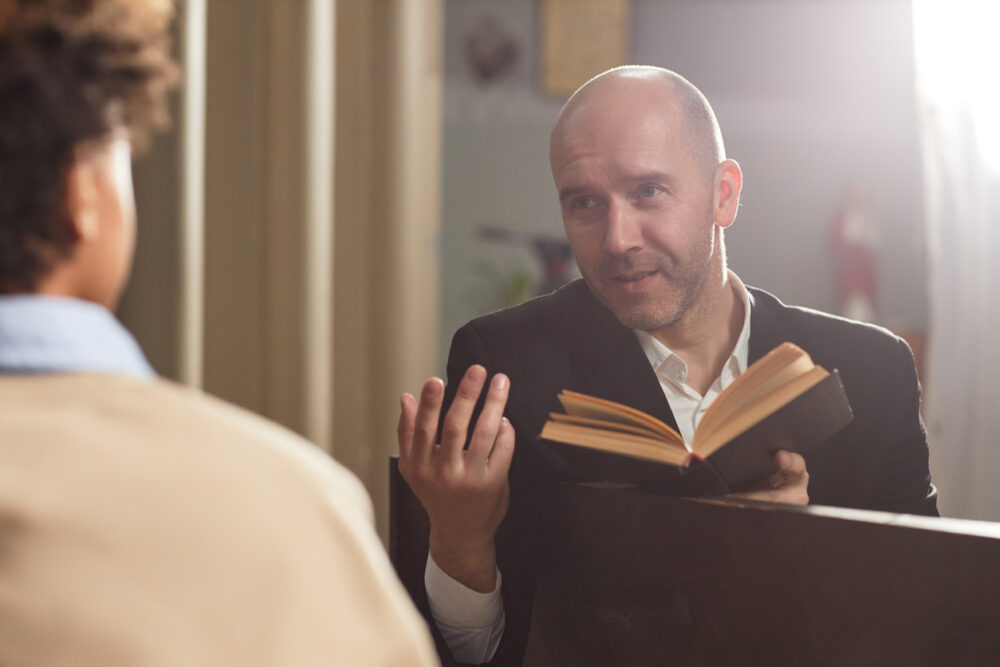
There’s nothing wrong with personal faith—most people find comfort in their beliefs. But when religion gets twisted into a tool for power, that’s when things turn dark. You start hearing phrases like “God’s will” used to strip people of their rights. Leaders cherry-pick scripture to defend policies that hurt the vulnerable. And suddenly, faith becomes less about spiritual connection and more about enforcing obedience, as Edward Lempinen writes for UC Berkeley Research. Sound familiar?
In The Handmaid’s Tale, religion was the justification for everything oppressive, and it’s chilling how that dynamic echoes in real life. It’s one thing to live by your own values, but it’s something else entirely to force them on everyone else. That kind of righteousness can be dangerous, especially when it’s backed by law and political influence. You don’t have to be religious—or anti-religion—to see how frightening this trend can be when taken to extremes. It’s not just about beliefs; it’s about control.
3. Powerful men are deciding what happens to women’s bodies.
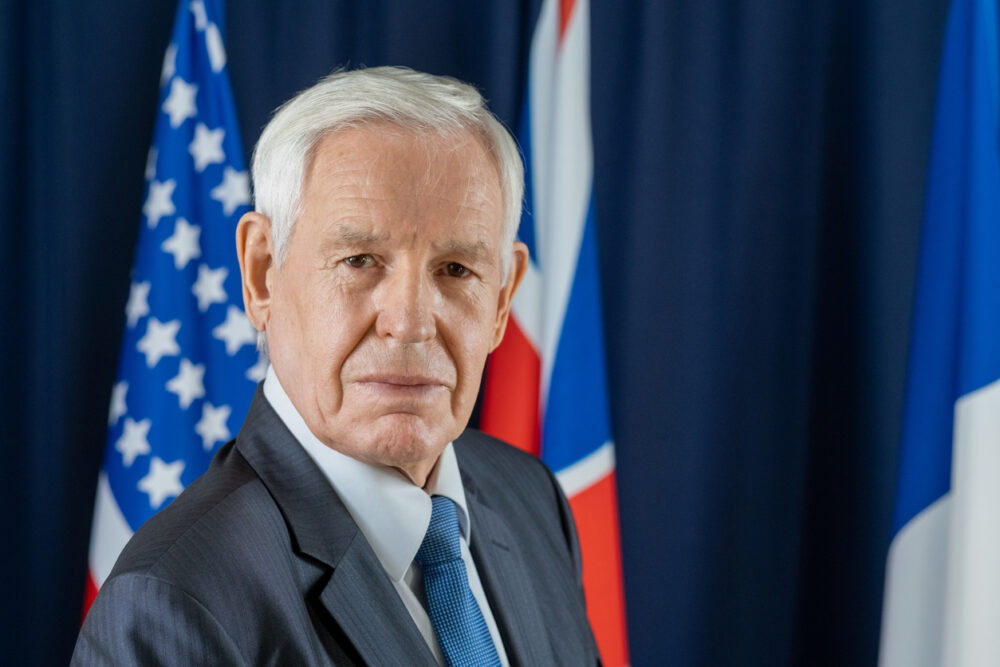
It’s wild how often you’ll see an all-male panel or group making decisions about things they’ll never personally experience—pregnancy, birth control, reproductive health. You can’t help but ask: where are the women in these conversations? And why are people who’ve never walked in those shoes calling the shots? In The Handmaid’s Tale, women were reduced to their reproductive value, treated like vessels instead of human beings. It feels unsettling when real-world leaders echo that mindset, reducing complex issues to black-and-white debates without empathy or lived experience, according to Maria Grant in her article for The Talbot Spy.
You see laws passed without considering the emotional, physical, and financial toll on women. It’s not fiction anymore when a woman’s right to make decisions about her own body becomes a political game. It’s hard not to notice how the loudest voices often belong to those with the least at stake—and that’s a recipe for something far too close to Gilead for comfort.
4. Fertility is being framed as a woman’s national duty.
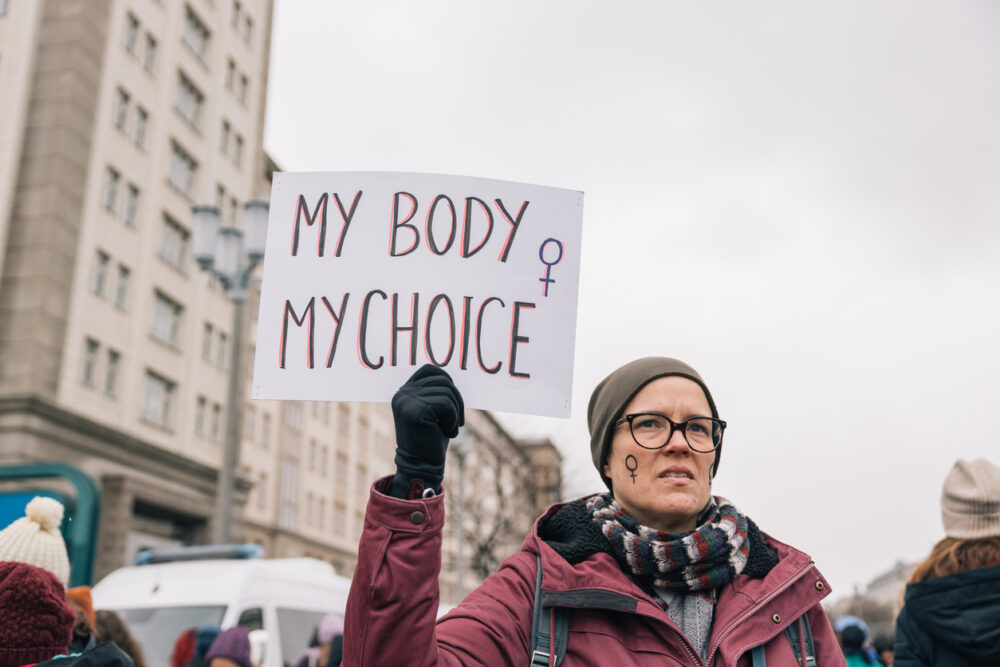
There’s a quiet but growing trend of governments pushing the idea that women should have more babies—for the economy, for the country, for tradition. You’ll see articles and speeches praising motherhood while ignoring the realities of raising children in a world that isn’t exactly family-friendly. It’s subtle at first, but the message is clear: your worth is tied to your womb. In The Handmaid’s Tale, that was taken to the extreme, turning fertility into a state-controlled asset.
Today, some policies and rhetoric sound like echoes of that world. Instead of supporting women with childcare, healthcare, and parental leave, there’s pressure and guilt. It’s not about choice—it’s about obligation. And when that pressure comes from those in power, it feels less like encouragement and more like expectation. You start to wonder if women are truly free to decide for themselves or if they’re being quietly boxed into a role they didn’t choose.
5. Dissent is being labeled as dangerous instead of democratic.
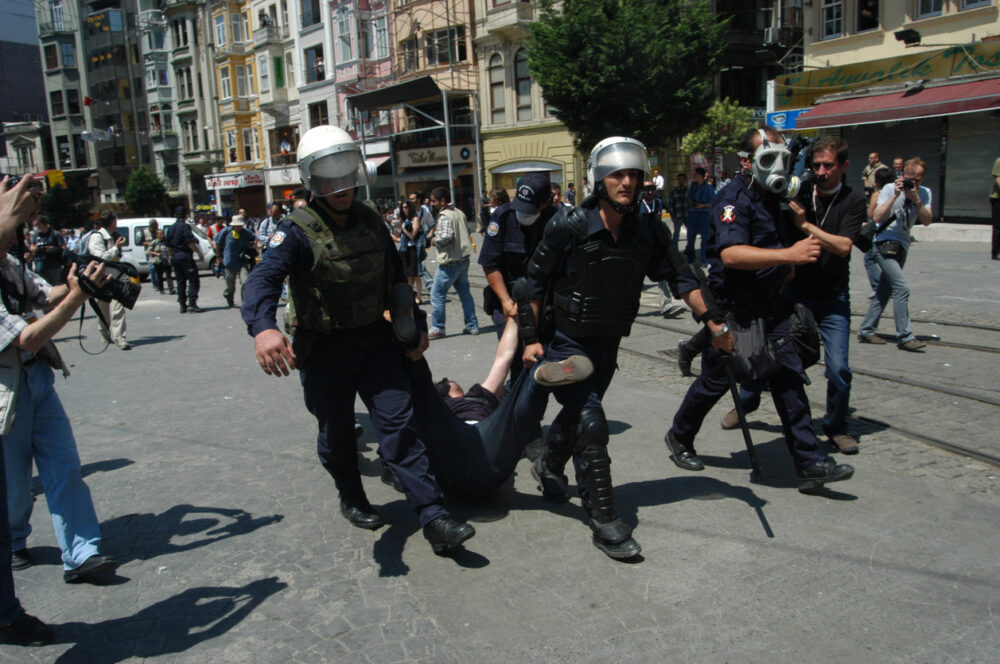
We’re supposed to be able to speak our minds, right? But lately, it feels like dissent is being painted as unpatriotic or even criminal. If you question the status quo, suddenly you’re a “troublemaker” or worse. In The Handmaid’s Tale, anyone who resisted was silenced—jailed, tortured, or killed. While we’re not there (thankfully), you can feel the pressure building. Journalists, protestors, and everyday people speaking up are often met with hostility or legal threats. The space for disagreement is shrinking, and that’s a big red flag. You might hesitate before posting something online or worry about backlash for speaking up at work.
That kind of fear silences people without a single law being passed. It’s not just about censorship—it’s about creating a culture where compliance feels safer than resistance. And once that becomes the norm, the slide toward something more authoritarian isn’t so far-fetched after all.
6. Surveillance is becoming part of everyday life.
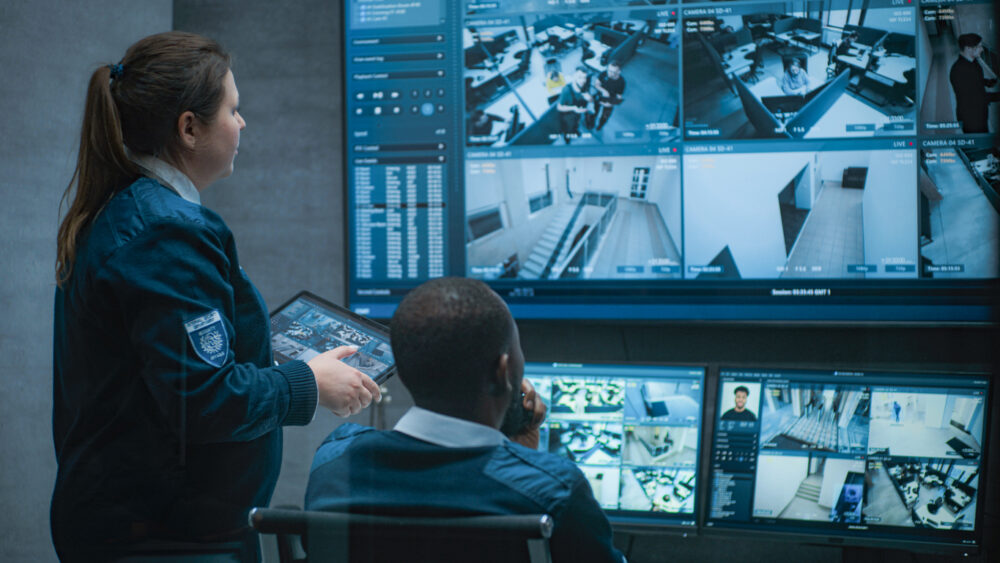
You used to think surveillance meant shady spies or hidden cameras. Now it’s your phone, your car, your home assistant—watching, listening, tracking. Every app asks for permissions, every website leaves a trace, and suddenly privacy feels like a luxury from the past. In The Handmaid’s Tale, surveillance was blatant—Eyes were everywhere. Today, it’s more subtle, but just as invasive. Governments and corporations alike are collecting data, sometimes without consent, sometimes with fine print you didn’t read.
And the most alarming part? Most people are okay with it. You get used to it because it’s convenient. But that’s the danger—normalizing the idea that everything about you is up for grabs. It’s not just what you do, but what you think, say, and search. When control and surveillance go hand in hand, freedom becomes an illusion. You’re still “free,” but only within the lines someone else quietly drew for you.
7. The media is being manipulated to shape public opinion.

It’s hard to know who or what to trust anymore. News outlets, social media, and even search engines can feel like they’re steering you toward a particular narrative. In The Handmaid’s Tale, the truth was whatever those in power said it was. And let’s be real—when headlines spin stories, omit facts, or flood your feed with distraction, it’s not that different. You start to wonder if you’re being informed or influenced. People cling to their preferred sources, echo chambers form, and division grows. It’s not just about misinformation—it’s about distortion.
When you control the story, you control what people believe. That’s why critical thinking matters more than ever. You’ve got to dig deeper, question everything, and stay alert. Because once the truth is blurred, it’s incredibly hard to pull it back into focus. And when facts become fluid, the foundation of democracy starts to crack.
8. Education is under attack and being politicized.
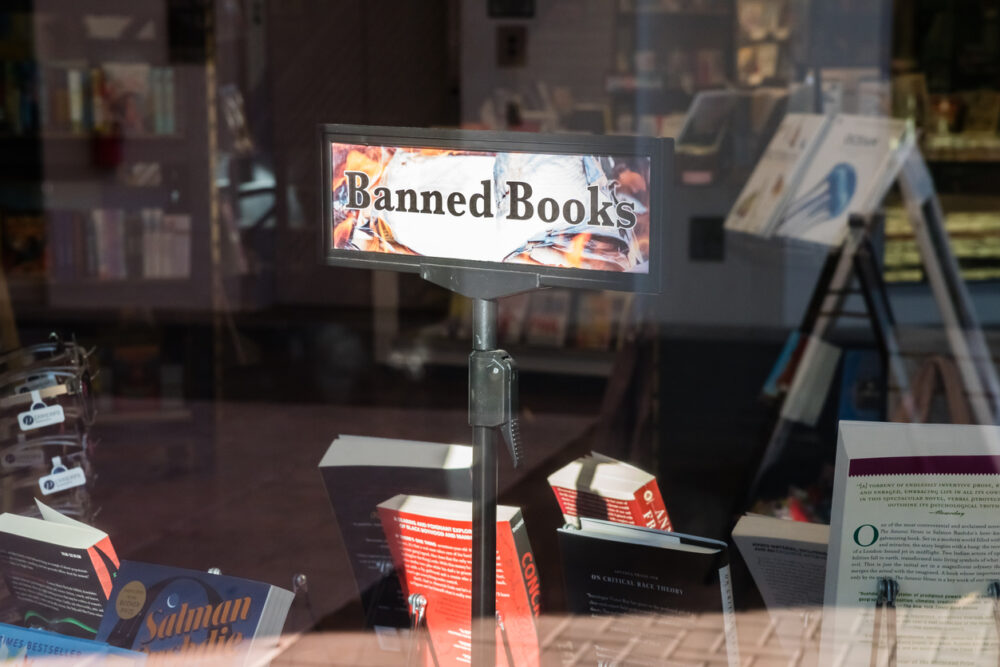
You may have noticed more battles happening over what kids should be allowed to learn. Books are being banned, curriculums rewritten, and teachers put under intense scrutiny. It’s not just about facts anymore—it’s about controlling the narrative. In The Handmaid’s Tale, women weren’t allowed to read because knowledge is power.
Today, while no one’s burning libraries (yet), there’s a real effort to limit what people can access and understand. It’s like the goal is to raise a generation that doesn’t question authority or challenge tradition. That’s not education—that’s indoctrination. When schools become political battlegrounds, students lose. And so does society. You should be able to learn the messy, complicated truth of history and current events—not just a sanitized version. When information is filtered, suppressed, or twisted, it’s easy to lead people down a path where they no longer know how to think for themselves. That’s when things get dangerous.
9. LGBTQ+ people are being stripped of their rights and visibility.
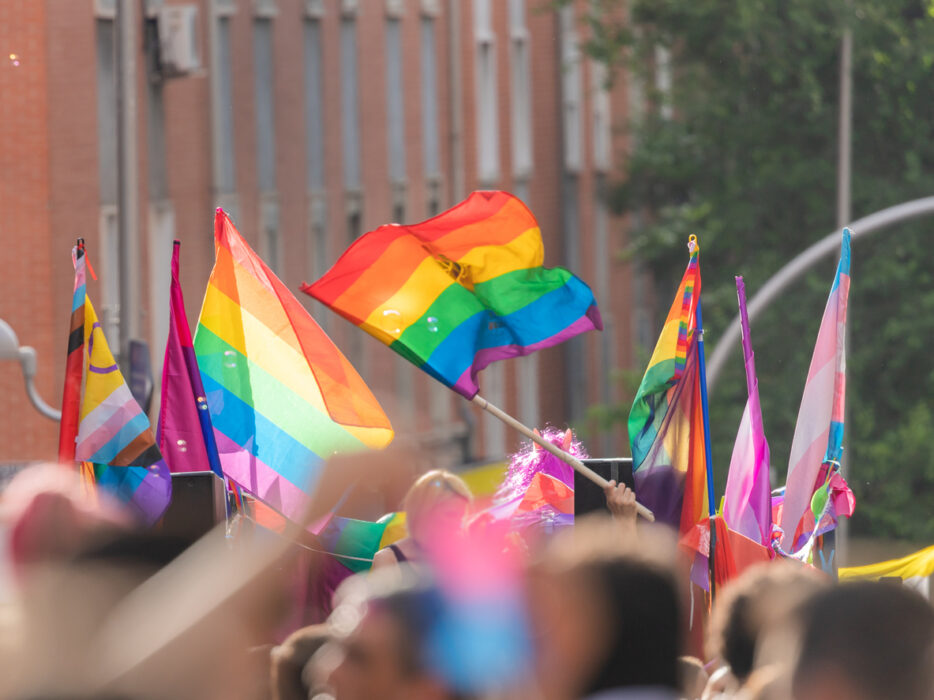
It’s heartbreaking to see people just trying to live authentically being pushed back into the margins. Laws targeting trans youth, drag performers, and queer families are popping up left and right. You start to wonder—why does anyone feel threatened by someone else just existing? In The Handmaid’s Tale, anyone who didn’t conform to the strict rules of gender and sexuality was erased—literally. Today, we’re seeing some of that same cruelty, cloaked in “family values” or “religious freedom.” It’s often framed as protection, but it’s really about power. LGBTQ+ people aren’t asking for special treatment—they’re asking to live without fear.
When visibility turns into a target, it sends a chilling message: only certain people are welcome here. And once society starts deciding who “belongs” and who doesn’t, we’re walking down a road that’s been paved in fiction—but is horrifyingly real in practice.
10. Extremist groups are gaining political influence.

It’s one thing for people to have strong opinions. It’s another when extreme ideologies start shaping public policy. You see groups rooted in hatred or rigid beliefs making their way into mainstream politics, gaining seats at the table—and then flipping the whole table over. In The Handmaid’s Tale, Gilead didn’t start as law—it started as an idea pushed by a small group that snowballed into power. That’s what’s most terrifying. These groups don’t represent the majority, but they’re loud, well-funded, and organized. And little by little, they chip away at democratic norms until only their version of truth remains.
You might think, That could never happen here, but look around. When fringe beliefs become law, and compromise becomes weakness, democracy starts to rot from the inside out. And if no one pushes back, the rest of us get dragged along for the ride—whether we signed up for it or not.
11. People are numbing out because the truth is too overwhelming.

It’s easier to scroll through memes or binge a show than it is to face what’s actually going on in the world. And who can blame you? Doomscrolling leaves you anxious, but tuning out feels like self-preservation. In The Handmaid’s Tale, complacency helped build Gilead. People looked away, stayed quiet, or told themselves it wouldn’t get that bad. But it did. Today, you might hear someone say, “I just can’t deal with politics anymore,” and it’s understandable—but dangerous.
Because while we’re all trying to protect our peace, the people who want control are staying focused. They’re counting on our exhaustion. The more we retreat into distractions, the easier it is for big changes to slide through unnoticed. You don’t need to be an activist, but staying awake matters. Ignoring the problem doesn’t make it go away—it just gives it more space to grow.
12. The line between democracy and authoritarianism is getting blurrier.
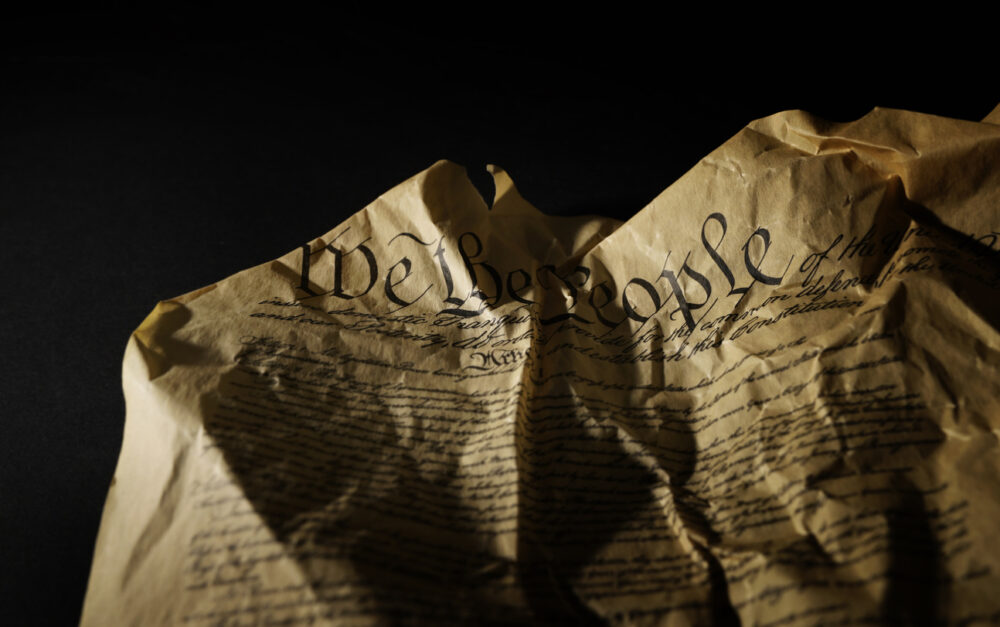
You grow up believing democracy is strong and stable—something you can count on. But then you start seeing cracks: leaders refusing to accept election results, courts being packed, rules being rewritten to benefit those in power. It all starts to feel shaky. In The Handmaid’s Tale, the government didn’t fall overnight. It eroded quietly until one day, freedom was just a memory. What’s scary now is how easy it is for authoritarian tactics to hide behind patriotic language.
You hear talk about “law and order” or “restoring greatness,” and it sounds fine—until you realize what’s really being lost. Democracy only works if people fight to keep it. Once you give up too many rights, it’s hard to get them back. And when the government stops working for the people and starts ruling over them, it’s not fiction anymore. It’s a future we’ve been warned about—if we’re willing to listen.
